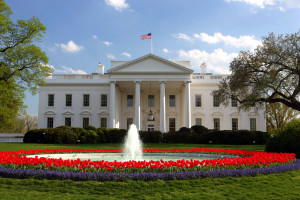President Obama has been making a big deal about Early Childhood Education (ECE in the education world) since at least his State of the Union speech in 2013. In his 2014 address, Obama set the goal of a public-private partnership to greatly expand and improve publicly funded ECE. In the President’s White House Summit on Early Education, Obama fulfilled that goal, announcing $750 million in public support and $330 million in private funding through Invest In Us, a major initiative of the First Five Year Fund.
More attention and money for ECE is good news for children almost no matter what, given the quality and availability of what’s offered now. But we know that having Montessori in the mix would be even better news for children and good for education in general. And that’s what’s exciting about what happened at the summit. Part of that private $330 million is a $15 million commitment from Trust For Learning, a collaborative fund supporting Montessori education and a project of the McCall-Kulak Family Foundation and the McTeague Catalyst Fund, which organized and funded the Montessori Leaders Collaborative, which brought together the leaders of the Montessori movement in the U.S. including AMS and AMI-USA, helped launch the Montessori Census , sponsored the State Public Policy Project, and more.
So on Wednesday December 10th, Stephanie Miller, Executive Director of Trust For Learning (along with a team of founding partners, foundation partners, board members, etc.) was at the Summit, a six hour invitation only gathering at the White House with lunch in the Indian Treaty Room, breakouts, and a 30 minute address from the President. So when we talk about Montessori being at the table, in the room with the people spending money and making decisions at the highest levels, that’s what we’re talking about.
And about that $15 million: That’s a 5 year commitment to programs supported by various partner foundations “aligned with a central Trust For Learning strategy for bringing high quality public Montessori to more children in this country, especially the ones who need it most.” That means it will be spent locally, and the key, according to Miller, is to “build momentum at the local and state levels.”* This is where Montessorians everywhere can join state organizations, talk to local leaders, and get involved. There’s a movement on!

